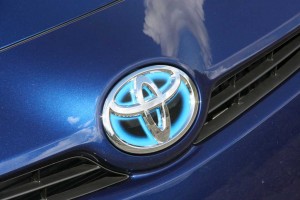Toyota Motor Co. has been dinged to the tune of $15.8 million in a legal fender bender about the handling of recalls.
Roger Hogan, who owns two dealerships in California, accused the automaker of retaliating against him because he raised concerns about the electric power system of the Prius and developed software costing the automaker millions of dollars in repairs for safety recalls, according to Bloomberg.
A state court jury in Santa Ana this week found Toyota liable for unfair interference in a contract, but the jury also found Toyota didn’t intend to deceive the dealerships by hiding material facts, and as a result didn’t have to pay punitive damages.
“Other dealerships should be aware that Toyota cannot mishandle safety issues and cannot retaliate against dealerships for their commitment to safety without consequences,” said Amnon Siegel, Hogan’s lawyer.
(Toyota Preparing to Invest $398M in Texas Truck Plant)
The jury also found Toyota was not liable for plaintiffs’ allegations of fraud by concealment, including those involving Prius inverter safety issues claimed by the plaintiffs, Toyota said in a statement. However, it did find Toyota liable for the claims of breach of the implied covenant of good faith and fair dealing, awarding approximately $15.8 million in total damages.

Problems with the Toyota Prius and its electric power system were at the heart of a lawsuit against the automaker.
The jury further determined that both dealerships “engaged in misconduct directly relating to its claim against Toyota for breach of the implied covenant of good faith and fair dealing” and discounted $2.3 million from their judgment as a result.
(Toyota Reads Market Writing on the Wall, Agrees to Build More SUVs)
“While we respect the jury’s decision, we remain confident the evidence and testimony clearly demonstrated that Toyota abided by its contractual obligations to the Roger Hogan dealerships and has been transparent with its dealers, regulators and customers regarding the vehicle issues raised at trial. We will consider our options moving forward,” Toyota said in a statement.
In his lawsuit, Hogan accused Toyota of concealing that it was planning to oust him from its franchise system as far back as January 2011 while he was investing millions of dollars to expand and renovate his dealerships.
(Toyota Announces New Features for 2020 Model-Year Line-up)
Hogan claimed that his software, which was developed after a recall related to complaints about sudden acceleration, was much more efficient than Toyota’s own system for identifying and contacting customers whose vehicles hadn’t had repairs done.

